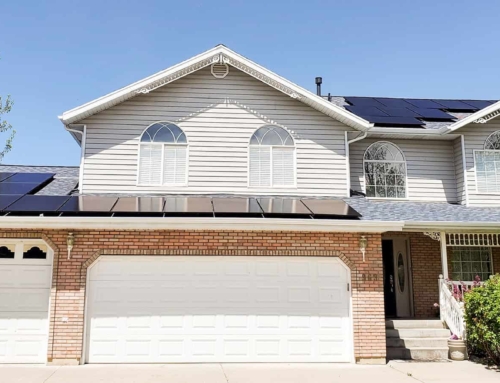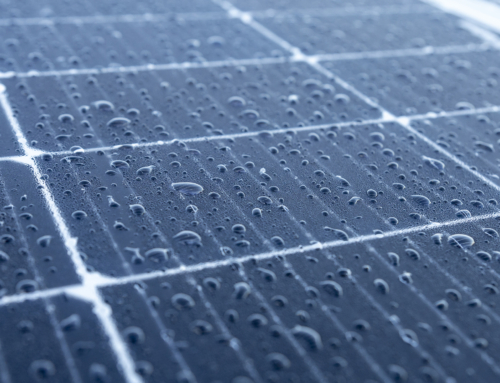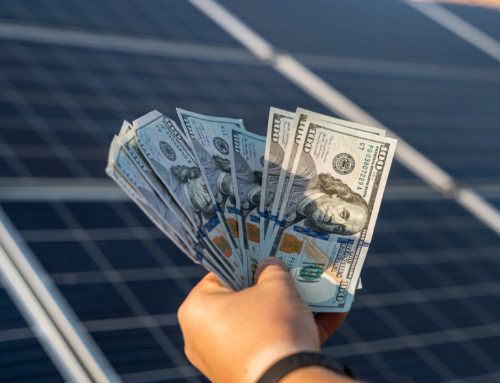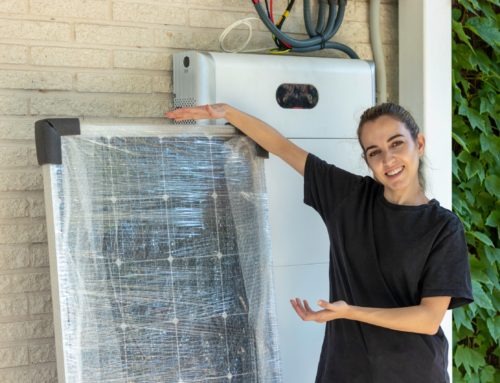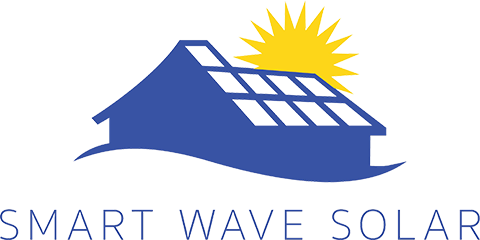Yes, photovoltaic (PV) solar panels do work on cloudy days. PV panels are compatible with direct and indirect sunlight. Even on less sunny days, solar panels can continue producing energy, but the output won’t be as high with clouds blocking the sun.
Weather changes are one of the biggest concerns for people considering solar. Still, clouds aren’t as big of a detriment as you may assume. Solar radiation still breaks through clouds, which is why you can still get sunburned on a cloudy day, and why your solar panel system continues to operate.
What Changes in Efficiency Can You Expect?
Depending on the quality of your equipment, you can expect around a 20% decrease in your typical energy output with a 100-watt solar panel’s output on a cloudy day. However, with thick clouds and heavy rain, you can lose much more of your energy production daily average.
With that said, occasional rain is not necessarily bad news. Rain naturally washes away collected dirt on your panels so when the sun is back out, they work better than ever. Solar works throughout every season, including snow season—just be prepared for fluctuations in efficiency.
How Can You Prepare Your Solar Panels for Cloudy Days?
If cloudy days or rain are a common occurrence in your area, there are still steps you can take to keep your home running on solar energy. During sunny days, you’ll likely generate more power than you need and you have the option to store the excess for future use. This excess energy can be stored in a solar battery.
You could also take advantage of a net metering program. Net metering programs allow you to send leftover power to your local electric grid in exchange for credit. You can use the credit whenever you need to tap into supply from your electric utility company.
Both options do have some cons for storing solar output on good solar days. Solar batteries take up space and add up in cost if you buy multiple (which is necessary for storing enough backup power to cover an entire day). Net metering programs, on the other hand, are not always available in every area and don’t always give you enough credit to be worthwhile.
Can You Optimize Solar Panel Efficiency on a Cloudy Day?
Yes. You can do a few things to optimize your solar even if you live in some of the cloudiest cities in the U.S., like Seattle, New York, Boston, Milwaukee, and San Francisco.
To start, avoid solar panels that have central inverters. This is where each solar panel in the whole system is connected to the inverter for power conversion. Here’s the problem: When everything is interconnected in this way, all it takes is a tree or cloud shading a single panel to decrease the efficiency of all the other panels. To avoid this problem, opt for solar systems with microinverters.
Another thing you can do when shopping around for a system is to ask solar companies how their panels compare to others regarding the range of UV light absorption. Some solar cells can absorb a broader range of UV light than others. Solar panels that capture more wavelengths of light will more likely produce higher amounts of energy than others on cloudy days.
Shop Smart Wave Solar
Your solar dreams don’t have to end just because you live in a cloudy area. Smart Wave Solar offers high-quality solar panels that work on cloudy days. Plus, we’ll ensure you have the backup batteries needed for your home. We also offer an emergency-ready system that will have your back when you need it. Check out Smart Wave Solar today and request a quote.

